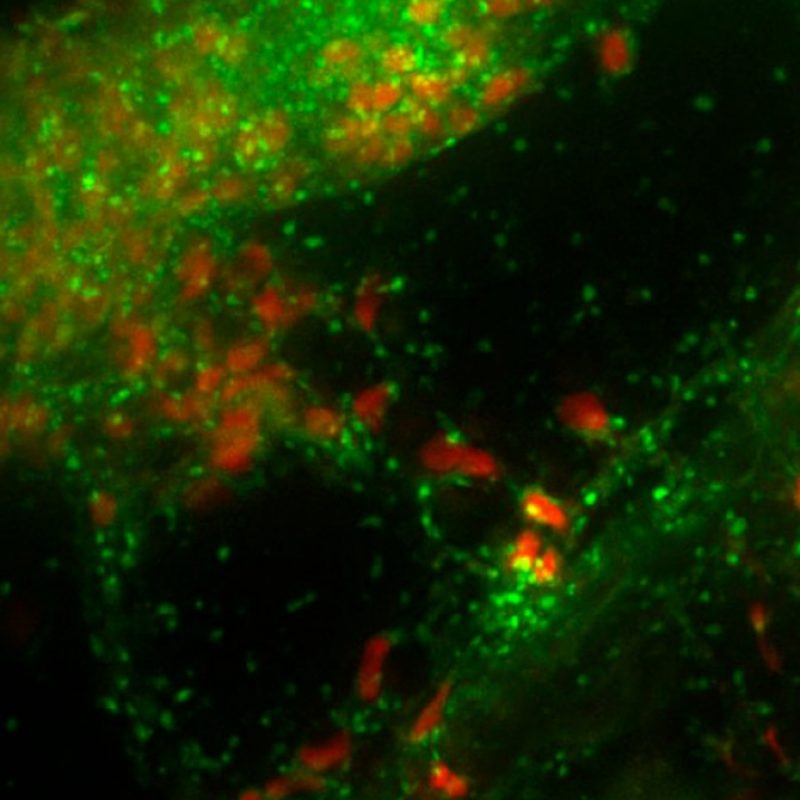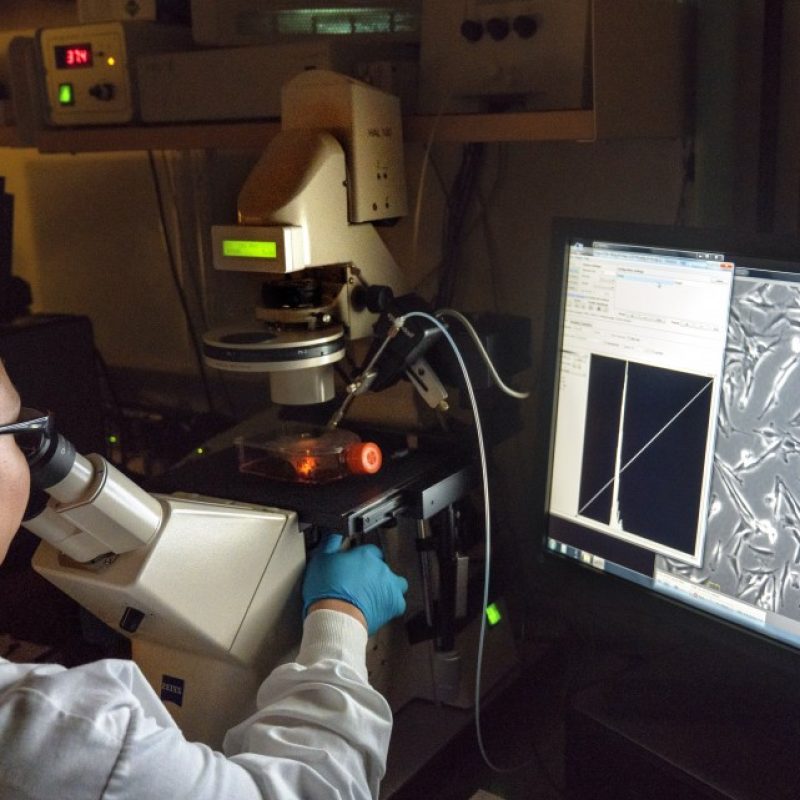Tag: Veterinary/Clinical Research
-

Gerlinde Van de Walle
With a dual focus on viral pathogenesis and stem cell biology, the objective of Dr. Gerlinde Van de Walle’s research is to open up new avenues towards therapeutic intervention by better understanding the pathogenesis of diseases important to veterinary and human medicine. To this end,[...] -

URE Program now accepting applications
Now accepting applications to CIHMID’s Undergraduate Research Experience (URE) Program for current Cornell undergrads. Find more info here. Applications are due Nov 8, 2024.
-

Tobias Dörr lab
My group studies cell envelope stress responses of Gram-negative pathogens. We are defining regulatory pathways and functional networks of enzymes involved in cell wall degradation, modification and synthesis as well as factors required for upholding outer membrane barrier function. We seek to understand these processes to gain insight into the mechanistic underpinnings of cell growth […]
-

Hector Aguilar-Carreno lab
The main focus of our research program is to elucidate key mechanistic components in enveloped viruses and their host cells that: 1) mediate viral entry into cells, 2) elicit cell immune responses, and 3) mediate viral egress from cells. These studies are leading to the development of diagnostic tools, new techniques, antiviral agents, and vaccines. […]
-

Whittaker lab: Coronaviruses and Musteloidea
The Whittaker lab’s paper out in mBio that looks deeper into coronaviruses and their relationship to the superfamily Musteloidea. PAPER: https://mbio.asm.org/content/12/1/e02873-20
-

Molecular dialogue between intestinal stem cells and microbiota
The intestinal epithelium faces unique challenges as it is constantly exposed to the passage of ingested material including food, bacteria and xenobiotics. To maintain tissue function, the intestinal epithelium is undergoing continuous renewal mediated by intestinal stem cells (ISCs). ISC proliferation and differentiation are constantly adapted both to the microbes present and to the gut […]
-

Mechanisms of Virus-Host Interactions
The main focus of our research program is to elucidate key mechanistic components in enveloped viruses and their target host cells that: 1] mediate viral entry into cells, 2] elicit cell immune responses, and 3] mediate viral egress from cells. Within our lab, these studies lead to the design, development, and testing of novel antiviral agents […]
-

Development of broadly neutralizing antibodies to influenza
Development of broadly neutralizing antibodies to influenza using a novel bacterial outer membrane vesicle platform: The Leifer and Putnam labs have an ongoing collaboration to use innovative engineering techniques develop, test, and understand the underlying immunological mechanisms of new vaccine adjuvant bacterial outer membrane vesicle platforms. We are interested in postdoctoral candidates proposing to take […]
-

The impact of interindividual variation in oral and gut microbiomes on host health
The Poole Lab studies the causes and effects of human microbiome variation with the goal of manipulating microbes to improve human health. We want to know why individuals respond differently to the same dietary intervention in order to develop precision nutrition protocols for the prevention and treatment of metabolic disorders. Our resources include, but are not […]
-

Mechanisms and Clinical Significance of β-Lactam Tolerance in Gram-negative Pathogens
Antibiotic treatment failure is an increasingly widespread burden on human health that poses one of the most significant threats to planetary life. Treatment failure is often due to the development of antibiotic resistance. A complete comprehension of the factors that promote the development, and particularly the dissemination, of antibiotic resistance is still lacking. Nonetheless, evidence […]
